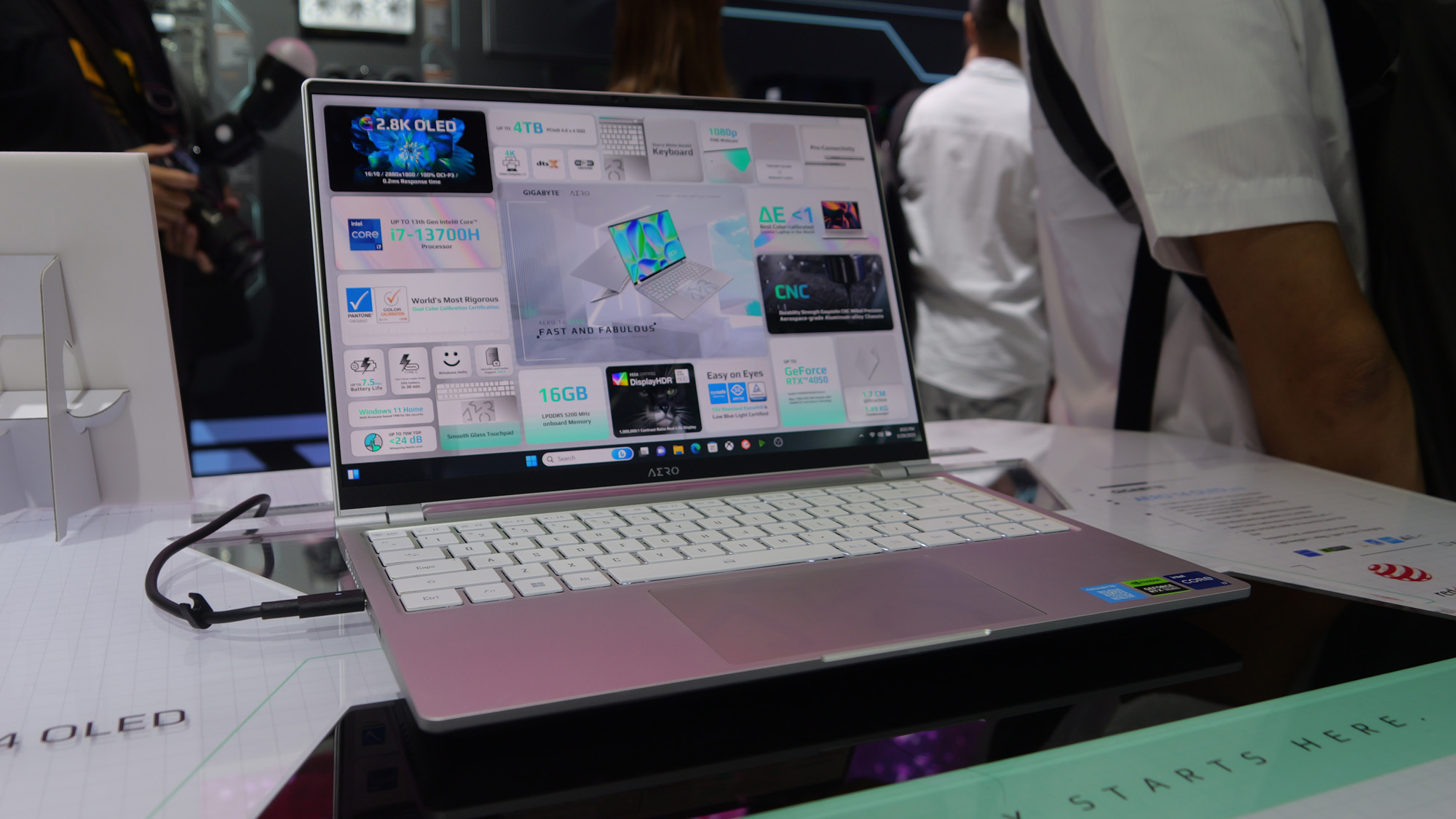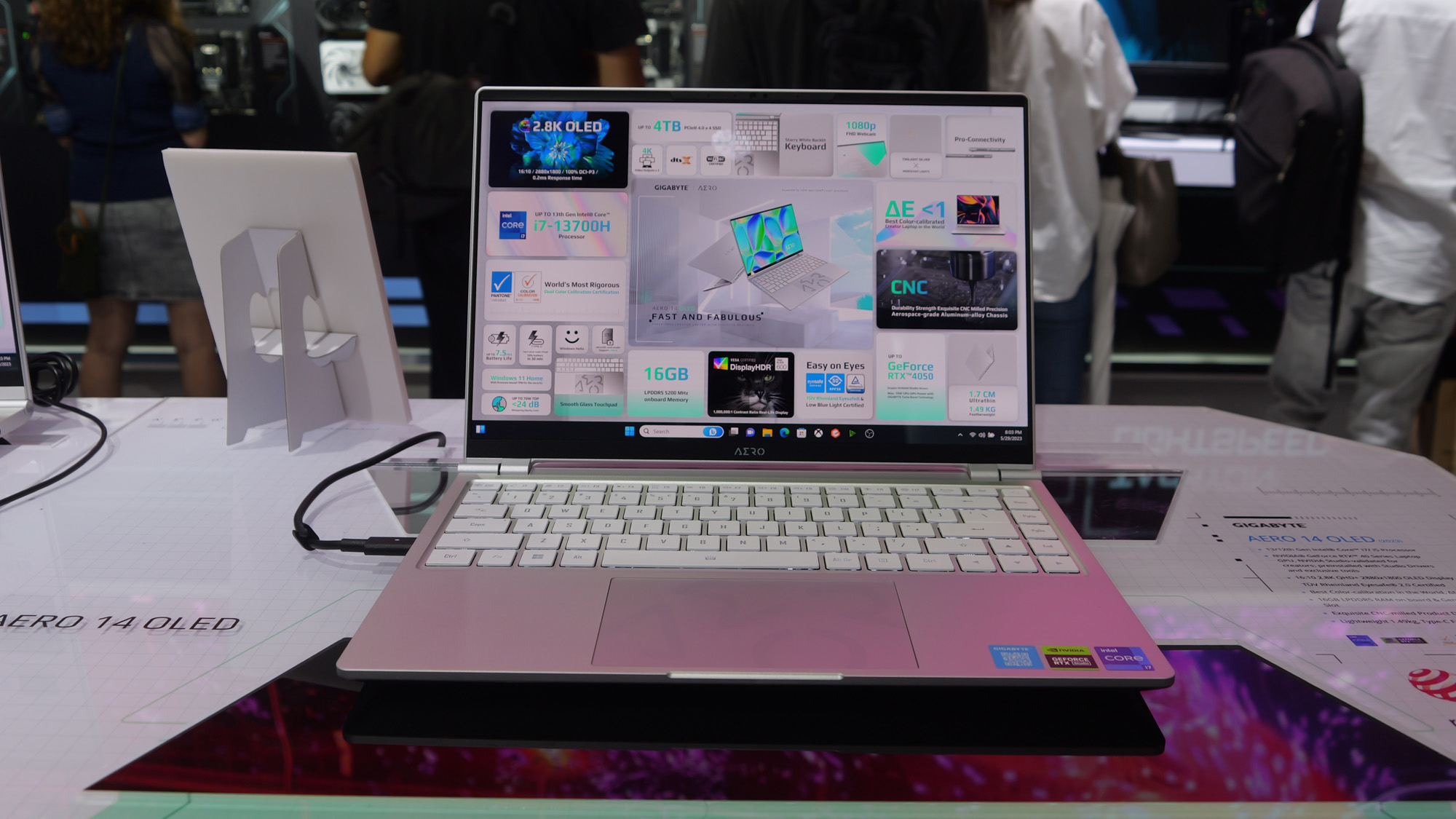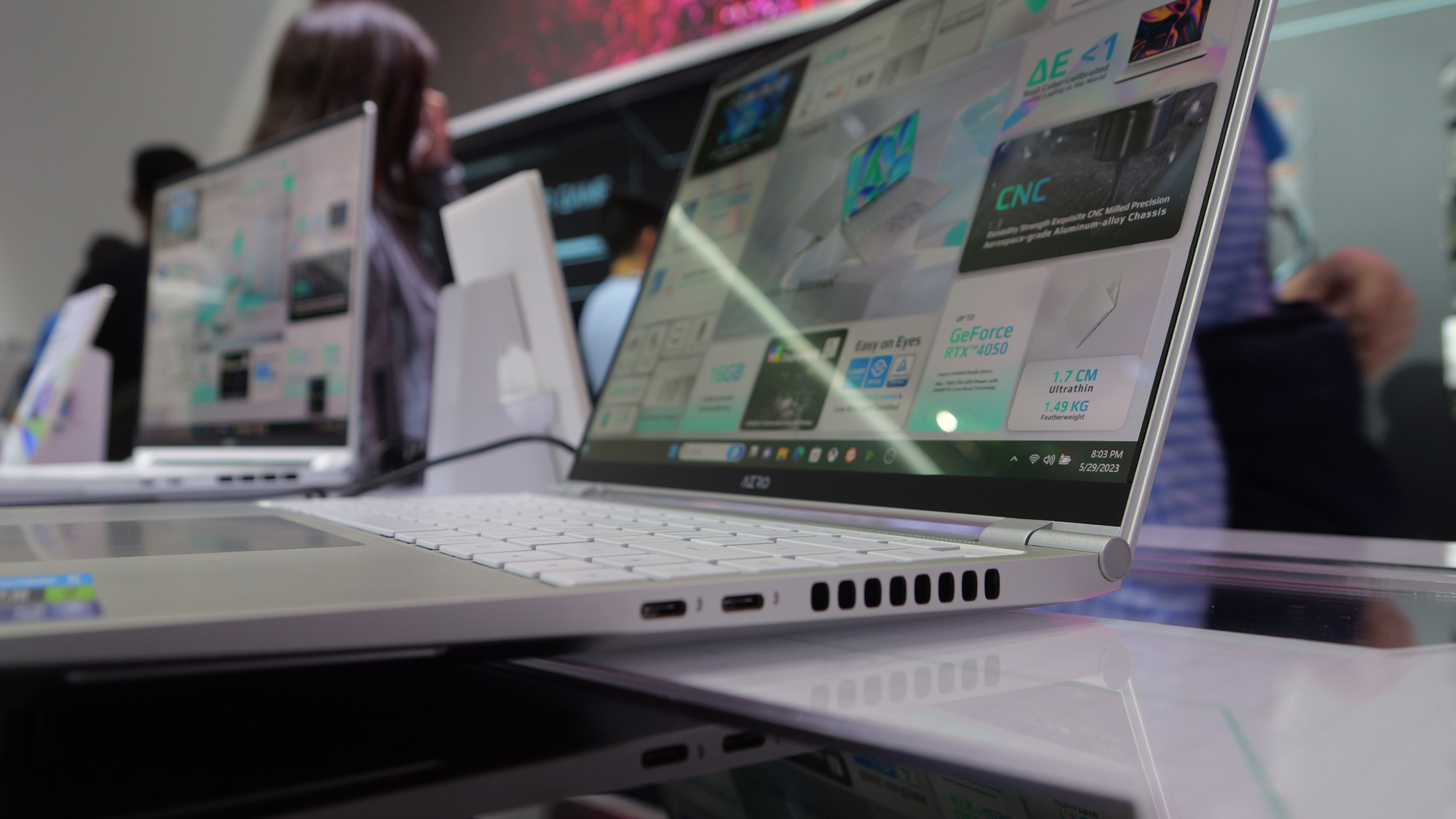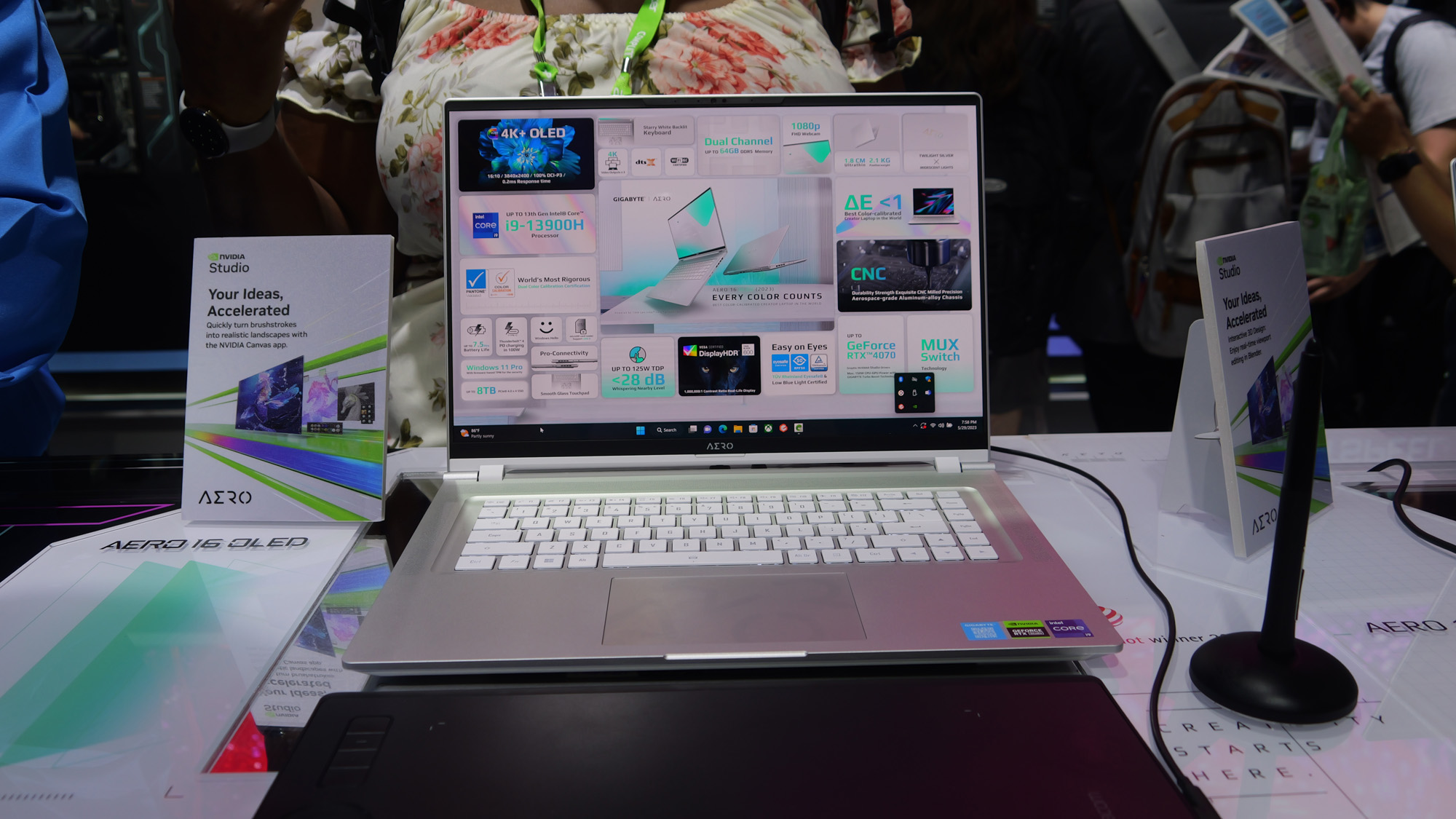Amid the hustle and bustle of Computex 2023, in Gigabyte’s booth sat an unassuming system. This silvery fox sat along the edge of the company’s laptop display, in the shadow of the flashier Aorus gaming laptops. But one glance at the Aero 14 OLED and I knew Gigabyte was onto something — at least if you count yourself as a creative professional. Jam packed with ports, a 14-inch, 2.8K OLED display and a powerful Intel processor coupled with an Nvidia RTX 40 series GPU, the Aero 14 OLED could be the new king of content creator laptops.
Pricing and configuration
Gigabyte is staying mum on the pricing for both the Aero 14 OLED and the Aero 16 OLED (yes, there’s a 16-inch iteration). They’re even being a little secretive on the specs. But I did glean a few choice specs. Starting with the Aero 14 OLED, the notebook will be available with either a 12th or 13th Gen Core i5 or Core i7 processor with up to 16GB of RAM, a 14-inch, 2.8K OLED display and an undisclosed Nvidia GeForce RTX 40 series GPU.

The Aero 16 OLED offers a boost in power with either a 13th Gen Intel Core i7 or Core i9 CPU, dual DDR5 Channel RAM slots and Dual Gen4 SSD slots, and a 16-inch, 16:10 aspect ratio 3840 x 2400 OLED display.
Design
What can I say? Compared to the behemoths it was next to, the Aero 14 OLED is straight up adorable. A weigh-in of 3.3 pounds puts the Aero 14 in the ultraportable class with the likes of the MacBook Air (2.7 pounds), Dell XPS 13 Plus (2.7 pounds) and Acer Swift 14 (2.9 pounds) — albeit on the heavier side of the spectrum.

Meanwhile, the Aero 16 OLED lands itself square in thin-and-light territory with a weight of 4.2 pounds. That’s lighter than the 4.8-pound MacBook Pro 16 and 5.3-pound Dell XPS 17, but heavier than the 2.5-pound LG Gram 16.
Both of the Aero’s are made from silver CNC-aluminum that has just the slightest touch of pearlescence. The lids are bare save for the engraved white Aero logo. The laptops’ exterior offer more of that silvery metallic goodness offset by the full-sized white island-style keyboard. It’s a nice touch that helps both systems stand out from the usual MacBook clones.
Ports
As befitting of a content creation system, both the Aero 14 and 16 OLED offer plenty of ports, my favorite of which is the full HDMI 2.0 port hiding in the rear of the devices alongside a full USB Type-A port. A pair of Thunderbolt 4 ports sit on the right with a USB Type-C port, a microSD card reader slot and a headset jack on the left.

And while those are plenty of ports in this day and age, if you need a bit of port expansion, check out our pages for best USB Type-C hubs and Best Laptop docking stations.
Display
When you’re a content creator, nothing’s better than a vivid, sharp OLED display, except a color-calibrated OLED panel. Gigabyte knows what you want and decked out both the Aero 14 and 16 OLED with the aforementioned color-calibrated screens.

According to Gigabyte, both panels have a Delta-E score of less than 1. And with 0 being the ideal, I’m eager to get both laptops in front of our colorimeter to put them to the test. But to the naked eye, each screen, whether it’s the Aero 14’s 14-inch 2.8K (2880 x 1800) panel or the Aero 16’s 4K (3840 x 2400) display, both of which have a 16:10 aspect ratio, deliver deep coloration and crisp detail.
Battery Life
Now here’s where things get interesting. For the Aero 16 OLED, Gigabyte estimates a 7.5-hour battery life. That’s feasible, especially with a discrete graphics card and a 4K display. When I looked for the Aero 14’s battery life, all I could ascertain was that the unit has USB Type-C fast charging capabilities. The vagueness is worrying. However, I could be overthinking things. But now, I’m chomping at the bit to see how long both systems last on our battery life test.
Bottom Line
The Gigabyte Aero 14 is an intriguing little system. It’s got a sleek, elegant look backed up by a fair or great amount of power depending on the configuration. It also has a super high-res panel that I’m eager to spend several hours getting lost in. But that’s not to slight the Aero 16 which with either a Core i7 or Core i9 and an Nvidia GeForce RTX GPU is a powerhouse in its own right — so much so that some of the more popular brands might want to watch their back.
But this is all conjecture until we actually get the laptops in for testing, which I’m hoping will happen sooner than later.
Back to Ultrabook Laptops
Source link
 notebook.co.id informasi dan review notebook laptop tablet dan pc
notebook.co.id informasi dan review notebook laptop tablet dan pc